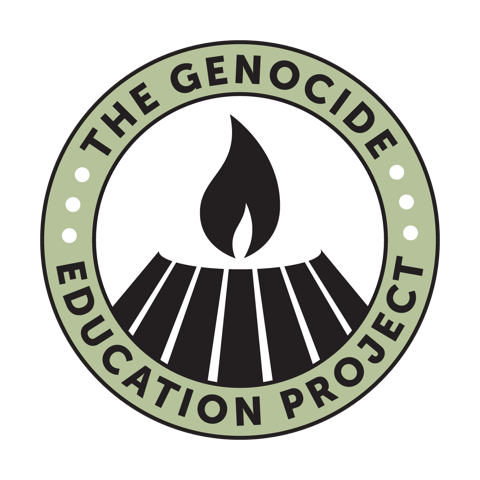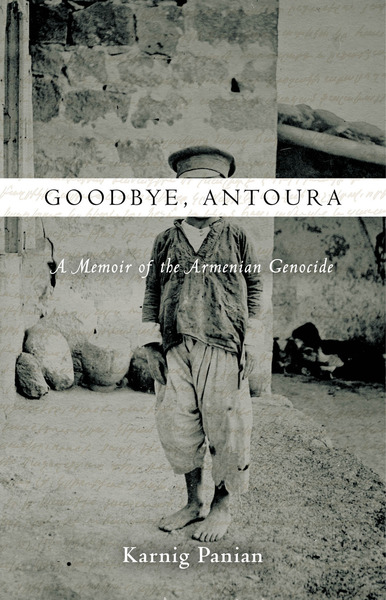A memoir by Karnig Panian
When World War I began, Karnig Panian was only five years old, living among his fellow Armenians in the Anatolian village of Gurin. Four years later, American aid workers found him at an orphanage in Antoura, Lebanon. He was among nearly 1,000 Armenian and 400 Kurdish children who had been abandoned by the Turkish administrators, left to survive at the orphanage without adult care.
This memoir offers the extraordinary story of what he endured in those years—as his people were deported from their Armenian community, as his family died in a refugee camp in the deserts of Syria, as he survived hunger and mistreatment in the orphanage.
Read excerpts from the memoir HERE
The Antoura orphanage was another project of the Armenian genocide: its administrators, some benign and some cruel, sought to transform the children into Turks by changing their Armenian names, forcing them to speak Turkish, and erasing their history.
Panian’s memoir is a full-throated story of loss, resistance, and survival, but told without bitterness or sentimentality. His story shows us how even young children recognize injustice and can organize against it, how they can form a sense of identity that they will fight to maintain. He paints a painfully rich and detailed picture of the lives and agency of Armenian orphans during the darkest days of World War I. Ultimately, Karnig Panian survived the Armenian genocide and the deprivations that followed. Goodbye, Antoura assures us of how humanity, once denied, can be again reclaimed.
Nora Lessersohn, Journal of the Ottoman and Turkish Studies Association:
“Goodbye, Antoura stands out as a telling, concise, and human portrait of a painful and traumatic component of the Armenian genocide. Beyond academic circles, the memoir could find a special audience among young adults, much as The Diary of Anne Frank has done. Panian’s skill at weaving the celestial with the hellish is a true gift to the reader; through Panian’s work, one can experience intimately this knot of angst and awe that is often concomitant with being a thoughtful child.”
(Excerpted from Stanford University Press)
Armenian-American scholar, Vartan Gregorian, on the enduring relevance of Karnig Panian’s story:
“The history of World War I is steeped in tragedy so fathomless as to sometimes seem impossible to comprehend. Millions died, both soldiers and civilians. Nation-states emerged; others were carved up, absorbed into neighboring regions, or simply—forcibly—had their name and borders erased from the world map. But if one looks back at this world conflict, a single word among all others asserts its right to define the underlying tragedy of this era, and that is genocide.
One of the tales arising from the seemingly unspeakable atrocities of genocide is given an extraordinarily strong voice in this memoir by Karnig Panian (1910-1989). Panian was a young child when he was caught up in the Armenian Genocide. With heartbreaking and yet affectingly poetic language, he brings the reader into his life as an orphan subjected to the daily abuse that inculcated a devil’s bargain: Forget who you are and we will let you live. You will always remain the “Other” but at least you will be alive, and for that you should be grateful. This combination of outright slaughter and brute-force brainwashing was the first modern example of a kind of historical lobotomy meant to erase an entire people from the record of human existence. Thankfully, it did not work.”
“Bodies may be slaughtered, human beings bludgeoned and burned, but if even a single child survives, then memory survives as well. Memory cannot be assassinated. Truth cannot be denied. Karnig Panian survived, along with the revelatory truth of his story, and all of humanity is enriched by what he remembers and what he relates.”

